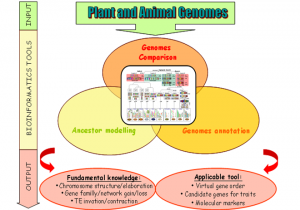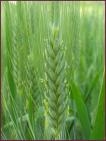
Blé
Screening of wheat genomic BAC libraries with specific primers for the TdDRF1 (Triticum durum Dehydration responsive Factor 1) gene
Drought is one of the most severe abiotic stresses limiting crop productivity and our understanding, at the molecular level, of crop response to water stress is further increasing.
Voir plus
Identification and sequencing of the asparagine synthetase genes in Durum Wheat
Identification and sequencing of the asparagine synthetase genes in Durum Wheat
Voir plus
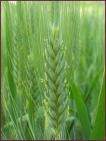
Analysis of WRKY and ERF genes potentially Involved in salt stress responses in Triticum turgidum L. ssp. durum.
WRKY transcription factors are involved in multiple aspects of plant growth, development and responses to biotic stresses. Although they have been found to play roles in regulating plant responses to environmental stresses, these roles still need to be explored, especially those pertaining to crops. Durum wheat is the second most widely produced cereal in the world. Complex, large and unsequenced genomes, in addition to a lack of genomic resources, hinder the molecular characterization of tolerance mechanisms. This project aims at characterizing TdWRKY genes from durum wheat (Triticum turgidum L. ssp. durum).
Voir plus
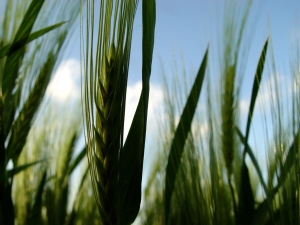
Construction of a BAC library of the tetraploid species T. dicoccoides
Collaboration with the Institute of Cytology and Genetics of Novosibirsk in Russia in order to construct a BAC library of the tetraploid species T. dicoccoides.
Voir plus
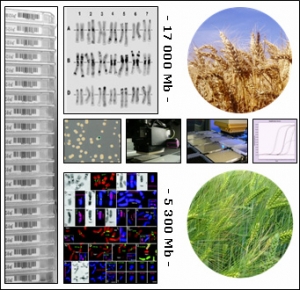
TriticaeGenome : Vers la caractérisation du génome du blé et de l'orge
Vers la caractérisation du génome du blé et de l'orge
Voir plus
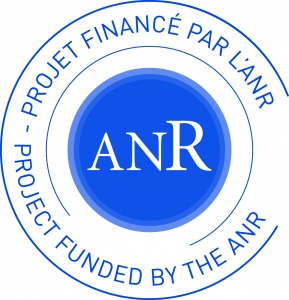
Evolutionary dynamics of genes controlling meiotic recombination in polyploid crop plants (DUPLIC)
Evolutionary dynamics of genes controlling meiotic recombination in polyploid crop plants (DUPLIC)
Voir plus
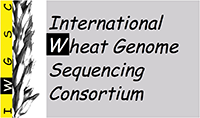
IWGSC : The International Wheat Genome Sequencing Consortium
Sequencing the wheat genome has long been considered an insurmountable challenge, due to the high complexity of the wheat genome. But improving average wheat yields has become a major objective with genome sequencing as its prerequisite. The International Wheat Genome Sequencing Consortium (IWGSC) was created in 2005 by a group of wheat growers, plant scientists, and public and private breeders to change this paradigm. Today, the international public-private collaborative consortium has more than 1,500 members in 60 countries. The goal of the IWGSC is to make a high quality genome sequence of the bread wheat cv. Chinese Spring publicly available, in order to serve as a foundation for the accelerated development of improved varieties and to empower all aspects of basic and applied wheat science.
Voir plus
Functional genomics of the wheat-Fusarium interaction
Functional genomics of the wheat-Fusarium interaction
Voir plus
Positional cloning of the SrWLR locus involved in the wheat stem rust resistance
The project is developed in collaboration with the laboratory of Dr Maricellis Acevedo (North Dakota State University) as part of Jason Zurn PhD thesis.
The project's objective is to characterize the SrWLR locus, responsible for stem rust resistance in wheat.
Voir plus
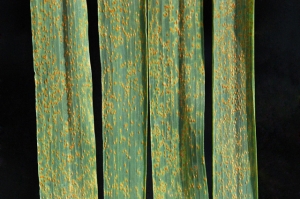
Identification of the genomic region responsible for the resistance to the leaf rust in the weat variety Sinvalocho MA using non gridded BAC library.
Identification of the genomic region responsible for the resistance to the leaf rust in the weat variety Sinvalocho MA using non gridded BAC library.
Voir plus

Controling Recombination rate for pOlyploid Crop improvement (CROC)
Controling Recombination rate for pOlyploid Crop improvement (CROC)
Voir plus

Breedwheat : Developing new wheat varieties for sustainable agriculture
Developing new wheat varieties for sustainable agriculture.
Voir plus

